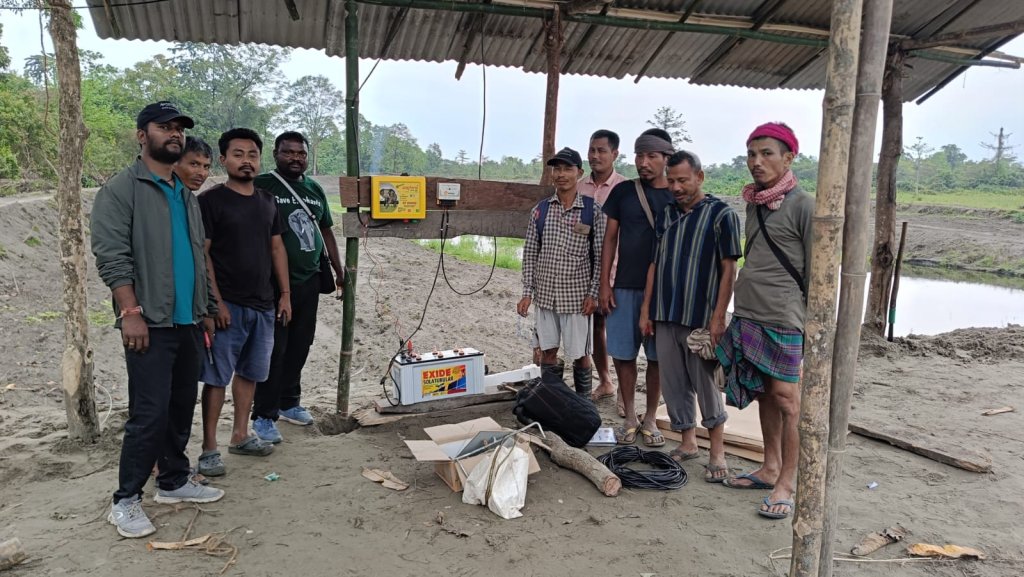As parts its relentless endeavour to mitigate human elephant conflict (HEC) so as to facilitate coexistence, country’s one of the premier biodiversity conservation organisations Aaranyak has installed a 2.3 kilometre-long solar-powered electric fence to restrict movement of wild elephants in Padumphula area in Sadiya sub-division of Tinsukia district in Assam.
Padumphula area inhabited by indigenous communities and mostly farmers has been a hot spot for HEC situated in Sadiya under Tinsukia district of Assam. The farmers in the area have been unable to secure their crops from depredation by wild elephants every year.
After doing a field study on the HEC problem and its ramification on the local population in the area, Aaranyak has taken the initiative to mitigate the problem in the area by installing a 2.3 km long single-strand community- managed seasonal solar fence on the periphery of the vegetable crop field at Padumphula recently.
Around 385 households located in Padumphula, Bacha Gaon No.1, Bacha Gaon No. 2 and Na-Basa Gaon will be benefitted from the solar fence in respect crop security.
The initiative has been taken by Aaranyak in collaboration with British Asian Trust, supported by Darwin Initiative (Biodiversity Challenge Funds). In this connection the community of the Padumphula had been trained by the Aaranyak team to build their capacity to install and maintain the solar fence at the community cultural centre of Padumphula a few months back.
After the training, the local community members were involved in installing the 2.3 km -long solar fence to protect their vegetable fields with technical guidance and supervision of the Aaranyak team. The installation work was completed on April 5 last.
The Aaranyak team was led by Rubul Tanti and comprised of Dibakar Nayak, Tonmoy Gogoi, Debojit Gogoi and village champion Debananda Gogoi.
